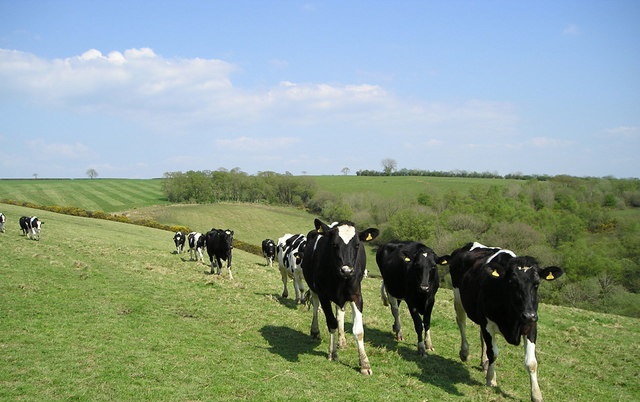
The European Milk Board (EMB) has today blamed the EU for still implementing a 'scorched earth policy,' in regards to dairy overproduction.
The EMB said: "Without a tool that allows for capping of milk production volume in times of crises, this policy will continue to harm not only milk producers, but up and downstream sectors as well."
Yesterday, European milk producers engaged in intensive discussions with MEPs and representatives about ways to put the brakes on such developments and the role of the European Parliament in this regard.
All those present agreed that an EU-wide solution must be found to reduce overproduction.
Adam Siekierski, the President of the European Parliament’s Committee for Agriculture, declared that: "The EU should provide the necessary financial means for cutting milk volumes."
President of the European Milk Board (EMB) Romuald Schaber highlights the responsibility of the European Commission in this context: "The Commission must show the will and provide the funds to make it possible to implement voluntary production cuts across the EU.
"Those who produce less should receive a bonus payment, these voluntary production cuts should not be something that can theoretically be implemented at national level; they should apply to all producers in all 28 Member States.
"This is the only way for the measures to be enforced and truly effective."
'Pure export promotion and overproduction'
The EMB's Market Responsibility Programme - a plan for the dairy sector during times of crisis - expressly includes voluntary production cuts at EU level.
Many MEPs have acknowledged the severity of the situation in the dairy sector and are calling for instruments to cap volumes.
"The Parliament can gather support and it must also play its part with respect to the milk crisis.
"It cannot allow itself to be pushed into the background by the European Commission and the Member States," says Schaber, stressing the need for a stronger role for this EU institution in issues related to the dairy sector.
"Farmers, rural areas as a whole, and consumers are depending on the will and assertiveness of their European representatives.
"After all, the scorched earth policy - which is causing major damage within and outside the EU through pure export promotion and overproduction - must be replaced by a policy that promotes the healthy and sustainable development of rural areas."
Yesterday’s meeting in the EU Parliament had been organised jointly by the European Milk Board and MEPs of different political groups.
